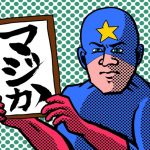What is the meaning of Omayuu? Omaiu? おまゆう おまいう

“Omayuu” is an SNS word/phrase that has been used in recent years in Japan.
The word originated in a ...
What does “dasai” mean? What does it mean in English?ださい

Perhaps many Japanese would be displeased when they are described as “dasai(ださい、ダサい)”.
The word spr ...
What does “Okan” mean? オカン

“Okan(オカン)” means “mother” in the Kinki dialect, and is mainly used by sons for their own mot ...
What does “mendoi” mean? What is it in English? めんどい

Benkyou wo suruno ga meindoi
勉強をするのがめんどい。
Heya no katazuke wa itsumo mendoi.
部屋のかたづけはいつもめんどい。
Son ...
What does “emoi” mean? エモい

The word “emoi(エモい)” has been used among young people recently.
Have you ever heard of it?
Actually, it see ...
What does “torima” mean? What do you say in English? とりま

Torima, mashi kutte kuru.
とりま、飯食ってくる。
Torima, otsukare.
とりま、おつかれ。
Torima yokatta.
とりま、よかった。 ...
What does “Muri” mean? In English?無理?

…… te iuka, muri.
・・・っていうか無理。
Suki sugite muri —!
好きすぎてムリー!
Tomoya, kawaisugite muri dawa! ...
What is the meaning of “maji” and its example sentences? マジ

“Maji, yabai“
“Eee, maji de?”
“Maji ka —“
“Maji de ureshi ...
What does “don-biki” mean in Japanese? donbiki! どんびき! ドン引き!

“Don-biki —!”
Have you heard this word?
This is slang, but recently some comedians, TV ...
What does ”tehepero” mean in Japanese? てへぺろ? テヘペロ?

In every country and at any time, young people create new words or shorten existing ones. They are usually slang, but ...